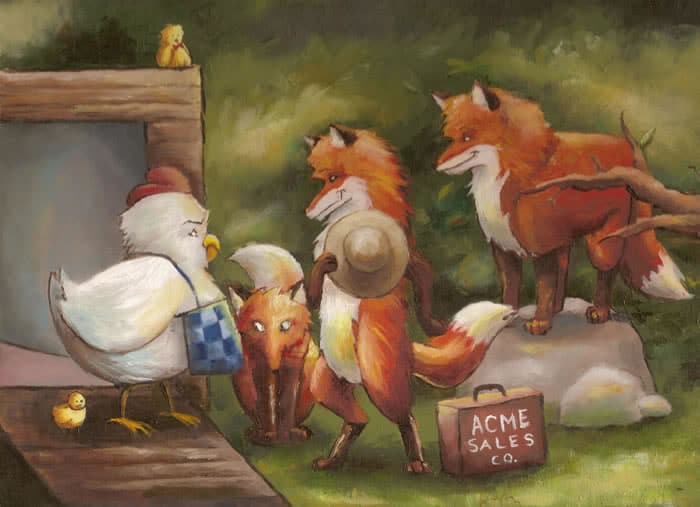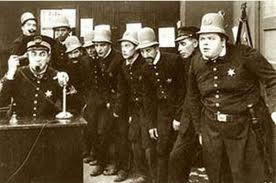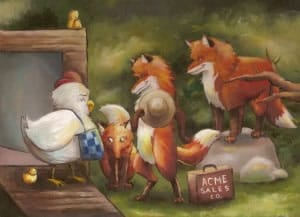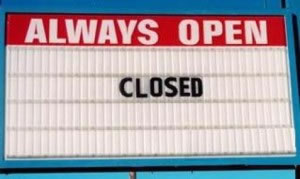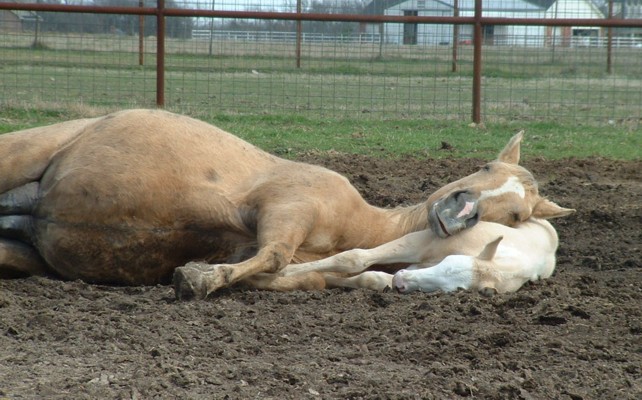I have no idea how many supplements are on the market today. Hundreds. Thousands. Supplements for every condition of the horse known to man. More than a few for conditions that are unknown to man. Problems that seem to have been invented out of whole cloth. Supplements to “support” pretty much every organ of the body. Supplements to do things that no one seems to know what they are supposed to do means (e.g., “increase bloom”).
“But, of course,” you think, “It can’t be that big a deal. Surely someone must be regulating all of these things.” I mean, it’s not like someone can just put anything in a bucket, make some claim, and call it a supplement, right?
Right? Right?
I hate to be the bearer of bad news, but, well…..
Supplements for horses are, in fact, kind of sort of supposed to be regulated. But, frankly, since the horse supplements aren’t meant for humans (most people aren’t in favor of unsafe substances going into people), and since horses aren’t food animals (most people aren’t in favor of unsafe substances going into people after having been first going into the animal), the safety and effectiveness concerns for the things that people give to horses are a bit lower down the ladder – like all the way down at the bottom. So, as it turns out, when it comes to horse supplements being regulated, they’re kind of sort of not, even if they are kind of sort of supposed to be.
In fact, the whole subject of supplement regulation of horse supplements is pretty muddled. The US Federal Food and Drug Administration (FDA) is in charge of regulating human supplements in the United States, although they’ve been sort of hamstrung by legislation euphemistically called the Dietary Supplement and Health and Education Act (DSHEA – CLICK HERE to read what an incredible economic boon that has been for supplement makers). Within the FDA is the Center for Veterinary Medicine (CVM – if you don’t have initials, you’re not anything in Washington, DC), which regulates animal medicines, medicated feeds, and animal food additives.
The CVM isn’t really much concerned with horse supplements, however, because as long as the stuff that you put into your supplement is generally recognized as safe (GRAS – seriously, the acronyms never stop), and as long as it isn’t meant for food animals, you can throw it in your supplement without much of a worry at all.
In addition to the government organizations that pretty much don’t regulate horse supplements, there are two other groups that are involved in not regulating the horse supplement industry. One is the Association of American Feed Control Officers (AAFCO). The other is an industry group called the National Animal Supplement Council (NASC).
Oh, by the way: If you didn’t know, the fox who guarded the hen house was a member of an industry group of foxes devoted to healthy hen management.
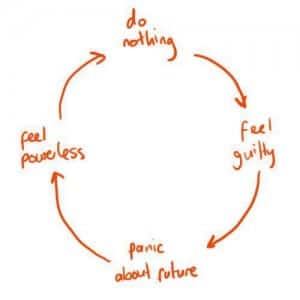 Anyway, both of these private organizations say that they try to work with state and federal authorities, which, given that state and federal authorities aren’t really doing anything, isn’t saying much. Even so, and even if you give the purest of motives to those groups, they have no regulatory authority. Otherwise stated, those groups don’t have any power to do anything. If you’re a supplement maker, you can belong to one or both of these groups, but if you don’t, there are no worries. Remember, no one is really paying much attention anyway.
Anyway, both of these private organizations say that they try to work with state and federal authorities, which, given that state and federal authorities aren’t really doing anything, isn’t saying much. Even so, and even if you give the purest of motives to those groups, they have no regulatory authority. Otherwise stated, those groups don’t have any power to do anything. If you’re a supplement maker, you can belong to one or both of these groups, but if you don’t, there are no worries. Remember, no one is really paying much attention anyway.
Supplements themselves fall into a special little niche that was carved out for them in the 1990’s. Remember, supplements aren’t drugs, (even if they may kind of sort of often imply that they might be). You see, manufacturing drugs is a real pain. If you’re a drug maker, you have have to actually have to prove that your drug does what you say it does, and then you get held to standards of manufacturing safety. Can you imagine? You have to prove that you’re telling the truth, and then make sure that your product contains what you say it does? Where’s the fun in that?
Happily (for the manufacturers) supplements aren’t drugs, so they don’t have to prove anything, as long as they don’t make claims that they do somethings specific (like preventing or curing disease). So, for example, you get some vitamin C. And you want to give it to horses. If you say, “This vitamin C will help heal your horse’s injured tendon,” you’re going to invite all sorts of problems, because you’ve just made a medical claim. But if you say, “This vitamin C is intended as nutritional support for the horse’s muscles, ligaments, and tendons,” you’re in the clear, because vitamin C is generally considered safe. To be frank, supplements that are sold in feed stores are of such low regulatory importance that you could probably say just about anything and get away with it. As such, when it comes to supplements sold to horse owners, the phrase consumer protection is pretty much a chimera.
VOCABULARY NOTE: I love the word chimera, and it means, “a thing that is hoped or wished for but in fact is illusory or impossible to achieve.” It’s also a really cool fire-breathing monster from Greek mythology. Come to think of it, a fire-breathing monster isn’t all that bad of an image for the supplement industry.
What this all means is that the regulation of equine supplements is essentially non-existent. You take some substances that are GRAS, throw them in a bucket or bottle, make some vague, non-specific claim for the product, and voila(!), you’re on your way to your very own supplement company. Horse supplements don’t require government approval as long as the additives are either approved, or generally recognized as safe. There are a couple of organizations that can make recommendations, but nobody has to listen to them. Individual states may have regulations, but that doesn’t do much to deter the supplement industry juggernaut.
 THE GREY(ER) ZONE: And, just when you think that this couldn’t get any more confusing, you run into things like herbal products, probiotics (supposedly live bacteria – except research has shown that there generally aren’t any live bacteria), and prebiotics (things that aren’t live bacteria, but that live bacteria supposedly like). These aren’t recognized as nutritional, so they really aren’t covered by the industry groups (as much as the industry groups cover anything). And, they aren’t recognized as drugs. So, as little consumer protection as exists in the horse nutritional supplement industry, there’s even less – imagine that – when it comes to these products.
THE GREY(ER) ZONE: And, just when you think that this couldn’t get any more confusing, you run into things like herbal products, probiotics (supposedly live bacteria – except research has shown that there generally aren’t any live bacteria), and prebiotics (things that aren’t live bacteria, but that live bacteria supposedly like). These aren’t recognized as nutritional, so they really aren’t covered by the industry groups (as much as the industry groups cover anything). And, they aren’t recognized as drugs. So, as little consumer protection as exists in the horse nutritional supplement industry, there’s even less – imagine that – when it comes to these products.
Bottom line? When it comes to supplements for your horse, you’re pretty much on your own. Nobody is really looking out for your interests.
So – and particularly if you’re worried about something – what you may end up doing is trying something out, and seeing if you can tell if it works. Maybe you’ll think it does. CLICK HERE to read about that.
 THE SILVER LINING: As much of a mess as all of this is, there’s a silver lining. That silver lining is your horse. One of the reasons that horses (and equids) have thrived as a species is that they don’t have a lot of specific needs. Otherwise stated, horses are well-designed to get everything that they need from some pretty sparse ingredients – decent quality forage, some salt, and water. Find those things, and your horse will be happy.
THE SILVER LINING: As much of a mess as all of this is, there’s a silver lining. That silver lining is your horse. One of the reasons that horses (and equids) have thrived as a species is that they don’t have a lot of specific needs. Otherwise stated, horses are well-designed to get everything that they need from some pretty sparse ingredients – decent quality forage, some salt, and water. Find those things, and your horse will be happy.
Except in specific circumstances (say, you live in an area that is deficient in selenium), you’re horse isn’t going to need supplements. If you think he does, you pays your money, and you takes your chances.

